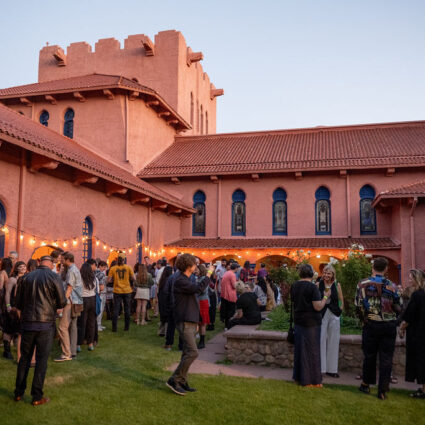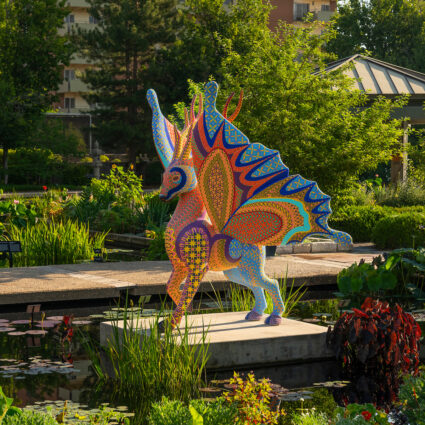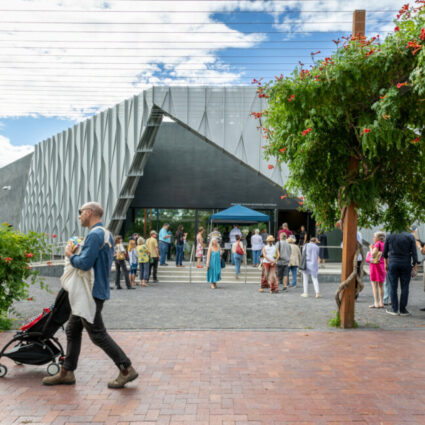Chicago-based tequila and taco restaurant Federales wants to set up shop in downtown Phoenix’s Roosevelt Row. Unlike other developments in the gentrified neighborhood, artists and arts leaders aren’t having it.
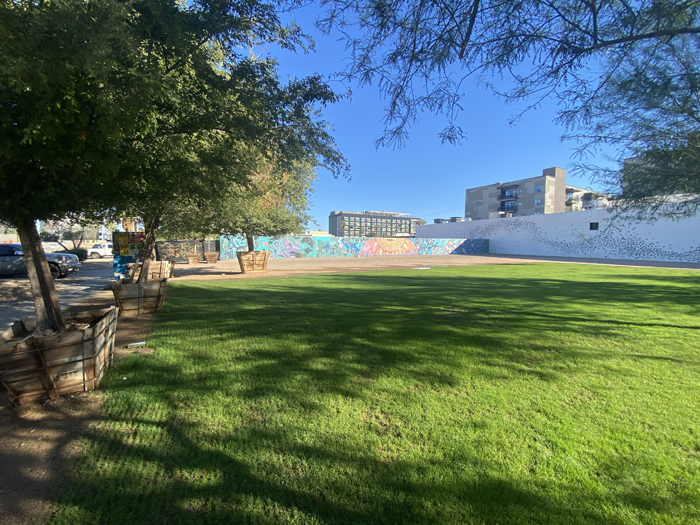
PHOENIX—Artist and eye lounge gallery collective member Laura Rodriguez has lived for seven years in the Evans Churchill neighborhood that includes Roosevelt Row, an area that’s been besieged by hyperspeed corporate development for approximately a decade.
“There’s a lot more density and diversity,” says Rodriguez, who hasn’t necessarily taken much issue with the changing face of the downtown Phoenix arts area.
Although Rodriguez likes the idea of more neighborhood restaurants and bars, she’s definitely resistant to a controversial project that’s in the works.
Locals first learned last year about plans to bring a Chicago-based tequila and taco concept called Federales to the neighborhood. Opponents such as Rodriguez are particularly concerned about online reviews alleging incidents of racism and homophobia by management and staff at locations in other states, a claim that a restaurant representative says is categorically false.
“I find all of these accusations to be incredibly inaccurate,” explains Matt Menna, managing partner for the Four Corners hospitality group that would own and operate the new bar and restaurant. “I can’t tell you how incensed I am over people taking to the bottom-of-the-barrel reviews off Yelp.”
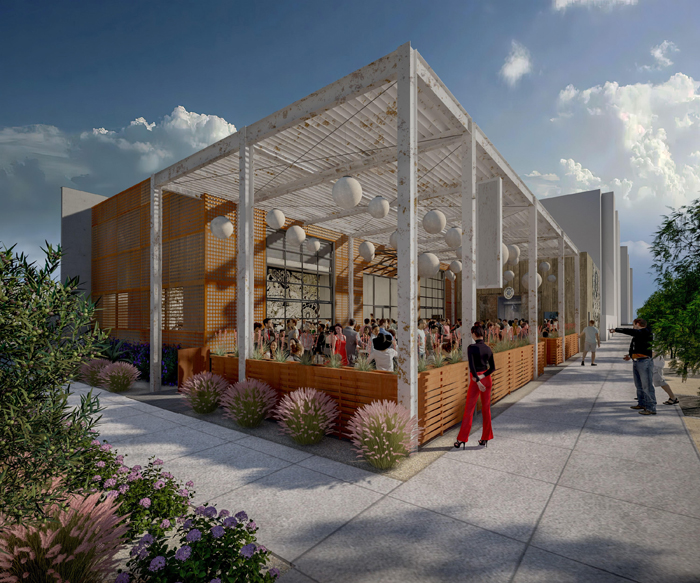
While critics also cite concerns about the project’s possible impact on area residents, small businesses, and creative spaces, a small business owner says that the out-of-state restaurant’s very moniker is tone-deaf and out of step with the area’s growing character. Nearly 200 people have signed a change.org petition (which has since been taken offline) opposing the project.
The blowback is a rarity in these parts, according to Kimber Lanning, who established Modified Arts on Roosevelt Row in the early 2000s.
“I have never opposed any other development on Roosevelt,” she told Southwest Contemporary in late March. A nerve has been struck, and both sides nervously wait to see what the City of Phoenix might do next.
The development would bring the new restaurant and bar to a corner of Roosevelt and Second streets located near several longtime galleries such as Modified Arts as well as MADE Art Boutique. Cindy Dach, a co-founder of MADE, also opposes the development.
Additionally, some leaders for Roosevelt Row-based arts organizations, including Phoenix Center for the Arts CEO Sandra Bassett and Cahokia SocialTech + ArtSpace co-founder Eunique Yazzie (Navajo), have formally expressed their opposition.
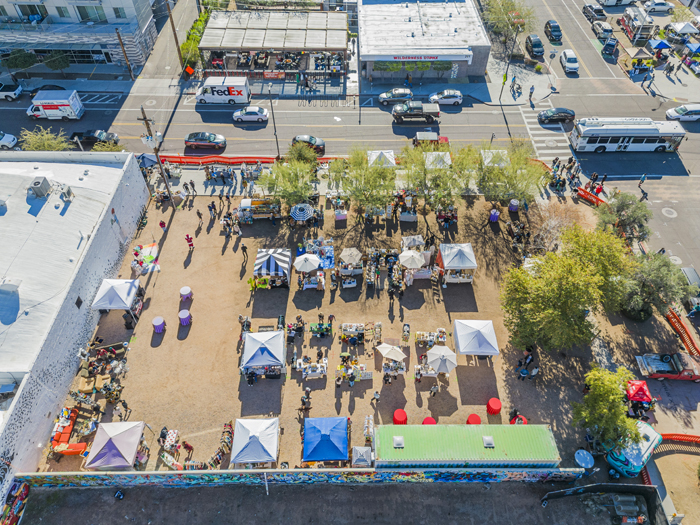
Cahokia member and Local Matriarch co-founder Claudia López has several concerns about the proposed restaurant and bar, including the name Federales, a slang term that’s often uttered to describe Mexican federal police agencies.
“Our community has already experienced so much political conflict with immigration and the issue of police violence, and this name just raises so many red flags,” says López.
Menna of the Four Corners hospitality group says that Federales is planning a name change for the proposed Phoenix location. “We will begin an exercise to create the name for our Second and Roosevelt venue once we receive our building permit,” says Menna, who, in response to the racism allegations, adds that the company is very proud of its diversity.
“We view ‘Federales’ in Mexico and its counterpart, ‘Feds’ in the U.S., as a benign term,” explains Menna. “For us, the word and its seven-point star logo stand for a Mexican authority, which we feel supports our goal to be a leader in authentic Mexican food and beverage.”
The restaurant’s name aside, it’s clear that artists have additional apprehensions.
For eye lounge member artist Amanda Mollindo, the project raises larger questions about development in the area, including the balance of small businesses, restaurants/bars, and creative spaces such as galleries.
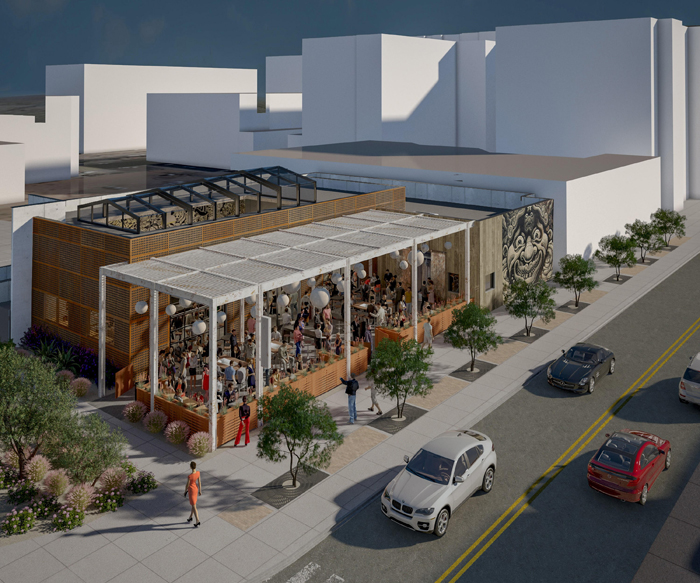
“We want to make sure the growth is conscious,” she says. “With so much happening in the area, people don’t always know the galleries are even here.”
Likewise, López considers the bigger picture.
“Gentrification has already pushed out and raised the cost of housing and art spaces in the area, especially for BIPOC communities,” she says. “Our community needs healing, so I’d rather see that location used for something with a wellness focus.”
The location has served as a community gathering place for many years, with events such as film screenings, pie socials, yoga sessions, and art markets.
“There was a building that burned down there, and the property owner allowed the community to use it,” recalls Dach of MADE Art Boutique. “I’m not opposed to building on it, but it should at least be something that honors this space.”
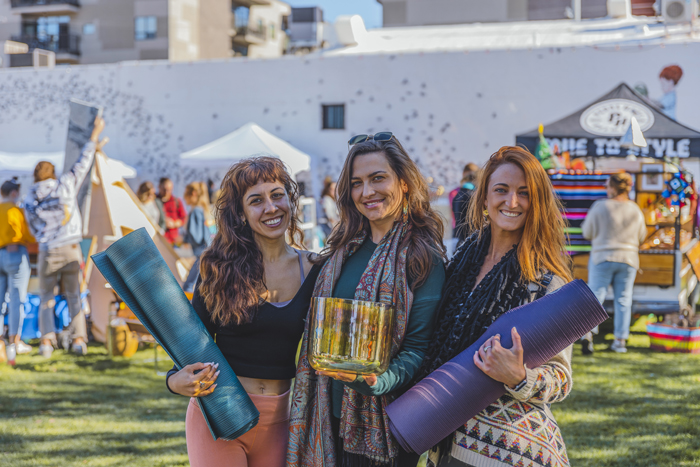
Menna says he remembers “falling in love with the fabric of the neighborhood” when he was scouting new locations. He’s since met with various developers, small business owners, and community groups in and around Roosevelt Row. “I think we would be a very good fit,” he says.
For those who’ve questioned the scale of the development, or worry about excessive alcohol consumption at the venue, Menna notes that the square footage includes a sizable back-of-house for the kitchen and operations, and cites the names of three establishments within just one-and-a-half blocks that have “a similar size and scale with a casual dining experience.”
So, what’s next for the developer’s proposal?
On June 1, 2023, the city’s board of adjustment will hold a public hearing where the agenda will include several matters related to the proposed bar and restaurant. Some specifics could change over time as the developer undertakes the city’s planning and permit process.
Members of the public can attend the noon hearing at Phoenix City Council Chambers, 200 West Jefferson Street, where comment cards will be available for those who want to enter their support or opposition into the public record. The city will also livestream the event.
Petitions opposing particular developments are a relative rarity in the arts district.
In 2014, several artists and community members signed a petition protesting a developer’s plans to demolish a creative space called GreenHaus so they could build a mid-rise apartment space. But the development still happened, near the corner that’s in question today.
Judith Dauncey, another local artist who opposes the developer’s plan, is hoping fellow artists and community members will keep an eye on the proposed project moving forward and voice their opinions.
“It’s important for people to get involved,” says Dauncey. “Most of the time, we don’t even know what’s happening until it’s already done.”
